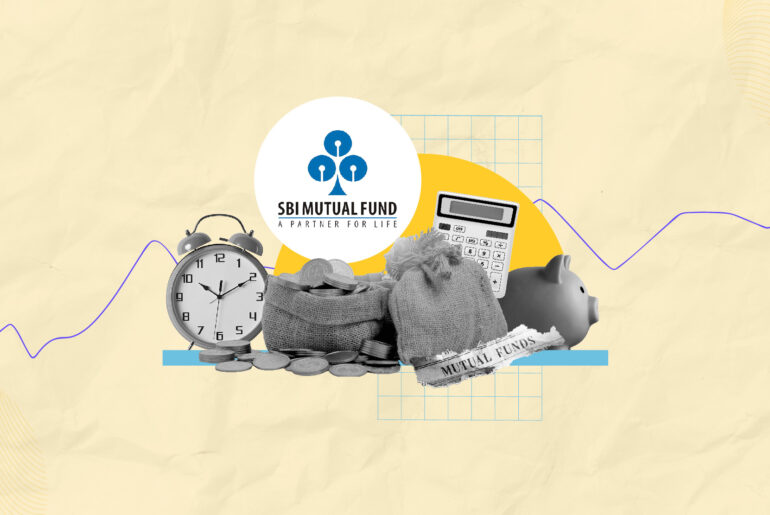Last Updated on May 24, 2022 by
International Women’s Day is celebrated every year on 8 March as an ode to the incredible women we are surrounded by. Each year, we reach out to our sisters, mothers, wives, daughters, and friends and share our appreciation for the female kind.
However, women are not free from stereotypes. One of the most prominent stereotypes against women has to do with finances and numbers.
This Women’s Day. Tickertape takes you through the deep-rooted bias surrounding women and how we can move away from it!
Table of Contents
Stereotypes around women and finance
Following are some stereotypes around women and finance that need to be busted right now.
1. Women have a bad relationship with money
It is a widely circulated stereotype that women are bad with money and are impulsive when it comes to expenditure. This an untrue picture painted by pop culture and global cinema.
In contrast to this stereotype, women have historically been careful spenders, better savers and excellent managers. In fact, Indian women are known to save money as a contingency for rainy days. Although this is not a competition, women’s saving habits are much more polished and refined than men’s.
2. Women are not capable of understanding finances
There is a false assumption that women cannot understand the nitty-gritty of how finances work. Technical terms like SIPs, credit scores, assets, revenues, avenues, and many such concepts are believed to be too difficult for women to understand. This idea is rooted in the archaic and outdated belief that mathematics is not a women-friendly subject. Anything remotely connected to numbers is not a woman’s cup of tea.
On the contrary, the female kin has again proved that understanding finance cannot be influenced by gender. In fact, it has been women who had been leading top banks in the country—from Chanda Kochhar to Arundhati Bhattacharya, even Gita Gopinath, who leads the International Monetary Fund.
As of 28 Feb 2022, the government-appointed Madhabi Puri Buch as the new Chairman of the SEBI, speaking volumes of how women are dominating the field of finance, despite all stereotypes and shortcomings. Malavika Hegde, who lost her husband to suicide (Late VG Siddhartha, founder of the CCD chain), not only took over the reins of the empire but also managed to turn around the same, reducing its debt by 75% in 2 yrs!
So, in other words, women not only understand finances exceptionally well but also reign in some of the most critical positions in the world entrusted with the responsibility of making financial policies.
3. Women are supposed to be dependent on their husbands
The age-old myth that women are dependent on the male members of their family to manage their personal finances is highly damaging. For the longest of times, women have been deprived of making their own financial decisions, leading to the ingrained belief that women are not capable of doing so. Many people also believe that women have been assigned specific roles as per their gender, wherein finances and money matters are excluded.
However, women are more than capable of handling their finances and making their own financial decisions. Times have changed, and women are readily stepping up to take charge of their financial health.
They can not only budget for the household but can also manage their finances and massive empires. Prime examples could be Falguni Nayar (Founder of Nykaa), Vineeta Singh (Founder of Sugar Cosmetics) or Kiran Mazumdar Shaw (Biocon founder) and many more!
4. Women’s financial decision-making is limited to the domestic sphere
The social conditioning of men and women led to the popular albeit wrong belief that women aren’t supposed to make any decision beyond the household. When it came to making financial decisions, they were limited to managing the household budget, rationing, and making sure the household expenses were met with the amount of money handed.
With progress over the decades, women have escaped the shackles of this belief. They are making financial decisions that include the domestic space and themselves and the people living in it. From savings to investment and insurance to budgeting- women are smashing outdated beliefs and doing it all!
5. Women do not need investments or financial protection
It has long been believed that women do not need financial freedom or financial planning. When it comes to investments and insurance, it has been perceived that either women don’t understand it, or they don’t need it.
Much to the chagrin of popular opinion, women are more than eligible for insurance and financial planning schemes. However, many women overlook the importance of disciplined investments in health and term insurance plans. It is time we publicise the importance of financial protection for women via investment plans, SIPs, mutual funds, and insurance plans.
Women and money can be better friends
There is no doubt that this is the era of resilient, confident, and financially independent women. Although the relationship between women and money has been skewed, here are a few actionable tips on how women and money can be better friends:
- Start taking charge of the investments being made. Inquire, read, and understand everything to expand your financial knowledge and become a better investor.
- Keep a record of your expenses and savings to check how much you are spending.
- Understand the importance of investments to secure your future financially. Start with as low as Rs 500 and watch your money grow.
- Understand your investment goals and invest money in different avenues. Upskill yourself in terms of available investment options and diversify your investment portfolio.
- Move away from the habit of depending on others to manage your investments and money. Start with baby steps and discover the feeling of doing it yourself!
The biggest stereotype we need to bust around women and finances is how fragile women are and need support to manage their finances. Instead of stereotyping International Women’s Day with flowers, chocolates, and all things pink, it is time we understand that women, personal finance, investments, and financial freedom are a fantastic cocktail. When women have shattered all glass ceilings and made their way to lead the 6th largest economy in this world as Finance Ministers, it is time we push financial independence for women, help them on the path of financial inclusivity, and make sure that we uplift each other instead of stereotyping.
Tickertape salutes the women of today, who fight societal stereotypes every waking minute of their lives, yet continue moving forward with confidence, touching the sky in every field, whether sports, finance or politics!
- List of Top Performing Index Funds in India (2025) - Apr 25, 2025
- Gilt Funds in India for 2025 – Meaning, Taxation, and More - Apr 21, 2025
- Alternative Investment Fund (AIF): Meaning and Category of Various AIFs - Apr 21, 2025




